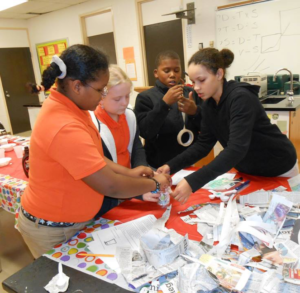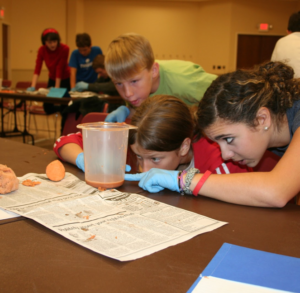Inspiring Future Science Leaders – CYFAR Project
go.ncsu.edu/readext?445316
en Español / em Português
El inglés es el idioma de control de esta página. En la medida en que haya algún conflicto entre la traducción al inglés y la traducción, el inglés prevalece.
Al hacer clic en el enlace de traducción se activa un servicio de traducción gratuito para convertir la página al español. Al igual que con cualquier traducción por Internet, la conversión no es sensible al contexto y puede que no traduzca el texto en su significado original. NC State Extension no garantiza la exactitud del texto traducido. Por favor, tenga en cuenta que algunas aplicaciones y/o servicios pueden no funcionar como se espera cuando se traducen.
Português
Inglês é o idioma de controle desta página. Na medida que haja algum conflito entre o texto original em Inglês e a tradução, o Inglês prevalece.
Ao clicar no link de tradução, um serviço gratuito de tradução será ativado para converter a página para o Português. Como em qualquer tradução pela internet, a conversão não é sensivel ao contexto e pode não ocorrer a tradução para o significado orginal. O serviço de Extensão da Carolina do Norte (NC State Extension) não garante a exatidão do texto traduzido. Por favor, observe que algumas funções ou serviços podem não funcionar como esperado após a tradução.
English
English is the controlling language of this page. To the extent there is any conflict between the English text and the translation, English controls.
Clicking on the translation link activates a free translation service to convert the page to Spanish. As with any Internet translation, the conversion is not context-sensitive and may not translate the text to its original meaning. NC State Extension does not guarantee the accuracy of the translated text. Please note that some applications and/or services may not function as expected when translated.
Collapse ▲Youth in both the Carolina’s face overwhelming challenges: failing schools, teacher turnover, the out-migration of young millennials from small towns and communities due to poor employment opportunities, and generational poverty. Leveraging resources and a multidisciplinary team of professionals from NC State, Clemson and NC A&T State Universities this project addresses CYFAR’s Program Emphasis USDA (REE) Goal 6: Education & Science Literacy.

This project engages students, ages 5 to 12, in STEM and Science Literacy programs in classrooms and afterschool programs in Anson, Richmond, Marlboro, and Dillon Counties in NC and SC. This project works with youth, families, teachers, administrators, afterschool providers and community-based organizations to
- Increase student knowledge, skills and attitudes in STEM focusing on food, agriculture, natural resources, biological and physical science curricula while leveraging hands-on technology
- Utilize formal and nonformal education programs, 4-H, outreach and community based initiatives that are highly relevant to agriculture science
- Promote family engagement and learning through nonformal program efforts and community events and expand STEM learning systems into new and existing 4-H and FCS community programs
In addition, this project will strengthen rural elementary teachers’ knowledge, skills and attitudes regarding science instruction, use of instructional resources, and technology applications that serve vulnerable families and communities.
The long term goal for this project is to increase youth interest in STEM related careers so that there is a more diverse pool of youth entering into STEM-related college programs and
career paths. 
*This project has been made possible by a grant from NIFA.


